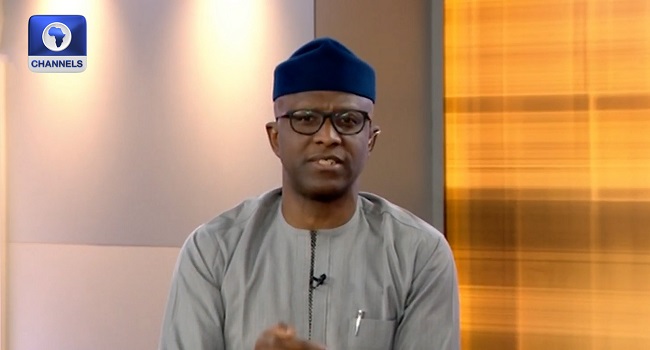I’m Surprised Nnamdi Kanu Wants a ‘Get-Out-of-Jail-Free’ Card – Laolu Akande
Laolu Akande, a former presidential aide, has expressed surprise regarding Nnamdi Kanu’s recent efforts to seek a political resolution rather than face judicial proceedings. In a recent interview on Channels TV’s Sunrise Daily, Akande shared his insights into the ongoing legal and political complexities surrounding Kanu’s case. “Nnamdi Kanu’s issue is very sensitive. Not only […]

Laolu Akande, a former presidential aide, has expressed surprise regarding Nnamdi Kanu’s recent efforts to seek a political resolution rather than face judicial proceedings.
In a recent interview on Channels TV’s Sunrise Daily, Akande shared his insights into the ongoing legal and political complexities surrounding Kanu’s case.
“Nnamdi Kanu’s issue is very sensitive. Not only does it have implications for issues of law and order, but it also has more implications on issues of politics,” Akande said.
“There are those who say that ‘this man has been accused of certain things, very grievous allegations, and they will have to be proven in court.’ These individuals argue that Kanu is responsible for certain chaos or statements traced to him.”
However, Akande acknowledged the alternative perspective, which views Kanu’s situation as a political problem requiring a political solution.
“Some say a certain part of the country – the South-East – the leaders especially feel that this is a political problem, and we can sort it out by letting this man go free with guarantees that there won’t be any recurrence of what has happened.”
Both sides present strong, compelling arguments, Akande noted, but he expressed a personal stance favoring a judicial resolution.
“I think that Mr. Nnamdi Kanu should be bold enough to face these issues in court, but apparently, he’s not. With the Senators from the South-East now meeting the Attorney-General, I think we should see how it goes. From someone with the boldness and courage of Nnamdi Kanu, you would expect him to prove his innocence in court. Yet, I’m surprised he is seeking a political solution.”
Akande also commented on the ongoing violence in the South-East, even with Kanu’s declaration to cease activism.
“He has said that he has stopped the activism, but the crisis and breakdown of law and order in parts of the South-East persist. Another figure, Simon Ekpa, has asserted control, saying, ‘Kanu is out of the picture, now I’m in charge.’ I haven’t seen the correlation between releasing Kanu and achieving peace in the South-East.”
Praising Senator Enyinnaya Abaribe’s boldness and courage, Akande disagreed with the senator’s skepticism about proving Kanu’s alleged crimes in court.
“For him to say that these issues cannot be proven in court, I think, that’s exactly what I think can be done. Nnamdi Kanu can pose a strong defense. A court process is meant to be fair, open, and transparent. There is no such thing that cannot be proven in court. It can be sorted out in court, which is also the position of the Attorney-General.”
Akande suggested that if Kanu is found guilty, the government could consider a pardon for political reasons.
“I don’t think it’s a good idea to complicate the judicial process. If he is found guilty, the government can consider a pardon for political correctness. If he is not guilty, he should go home.”
Addressing the security issues in the South-East, Akande called for cooperation between the South-East governors and the Federal Government.
“The Governors from the South-East, working with the Federal Government, should sort out the security issues in the region. Regarding the information that is in the public, I find no assurance from the Governors guaranteeing security in the South-East.”
Akande also discussed the broader implications of federalism and local governance, criticizing the current state of local governments.
“There are those who argue that we are practicing federalism, which includes a federating unit and a federal government. Local government ought to be the business of the federating units, which the federal government should not interfere with. The problem is, the governors have turned the local governments to nothing for the most part.”
